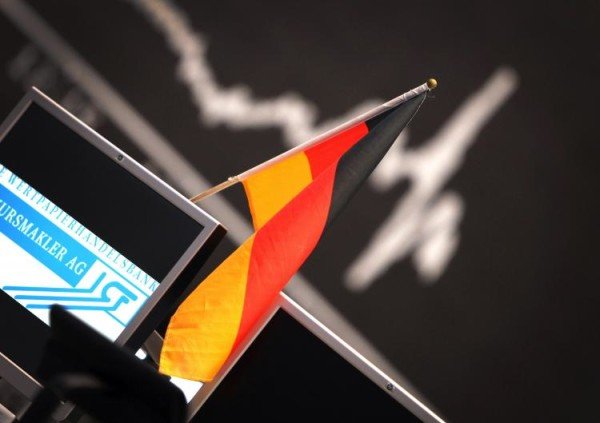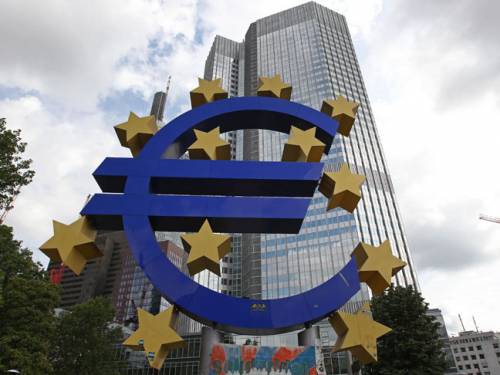Home Tags Posts tagged with "french economy"
french economy
According to latest official figures, the German economy slowed by more than expected in Q1 2015, growing by just 0.3%.
That compares with growth of 0.7% in Q4 2015, and was below analysts’ estimates of 0.5%.
Meanwhile, the French economy grew at its fastest rate in nearly two years, expanding by 0.6% in Q1 2015.
The growth figure is the strongest since Q2 2013, when France’s economy expanded by 0.7%.
Last month, INSEE said French consumer spending grew by 1.6% in Q1 2015, boosted by lower oil prices and a weaker euro.
French industrial production grew at its fastest pace for four years in the first quarter, INSEE added.
Despite private consumption and investment in construction and industrial equipment rising. Germany saw its exports fall which held economic growth back.
The German Federal Statistics Office also released inflation data which showed consumer prices rose by 0.5% in the year to April, up from 0.3% in March.
The figure was a marginal upward revision from the first estimate of 0.4%.
Inflation in German, as in the rest of the eurozone, remains stubbornly below the European Central Bank’s (ECB) target of just below 2%. The bank launched a €60 billion monthly bond buying program in March to try to stimulate the region and avoid deflation.
Italy’s economy grew slightly more than expected in the first quarter, fuelling hopes of a recovery.
The economy expanded by 0.3% in Q1 2015 having been flat in Q4 2014 and was flat on an annual basis official figures showed, beating analysts’ forecasts for 0.2% growth.
It is the first time the Italian economy has grown since Q3 2011.
An estimate of economic growth across the whole of the eurozone is due later.
France has entered its second recession in four years after the economy shrank by 0.2% in the first quarter of 2013, according to official figures.
The country’s economy shrank by the same amount in the last quarter of 2012. A recession is defined as two consecutive quarters of negative growth.
France has record unemployment and low business and consumer confidence.
German figures, also released, showed its economy, the eurozone’s strongest, grew by just 0.1% in Q1 2013.
France entered its worst recession since World War II in 2009. Although it was thought to have been in recession in 2012, these figures have now been revised to show only one quarter of negative growth.
The news comes on the first anniversary of Francois Hollande being sworn in as president.
Earlier this month, the European Commission warned that France would enter recession this year and said the eurozone’s economy would shrink by 0.4%.

France has entered its second recession in four years after the economy shrank by 0.2 percent in Q1 2013
The European Central Bank (ECB) cut interest rates at its last meeting to a record low of 0.5% in an attempt to stimulate growth.
In France, the rate of unemployment is running at 10.6% and is forecast to rise further next year.
Its deficit is also expected to rise sharply, the commission says, to 3.9% of GDP – well above the EU deficit target of 3%.
But French unemployment is below the eurozone average, which was 11.4% in 2012 and is expected to hit an average of 12.2% this year. In both Greece and Spain, it is expected to peak at 27%.
France this week passed a range of measures aimed at stopping the rise in unemployment by reforming the country’s labor laws.
These include measures to make it easier for workers to change jobs and for companies to fire employees.
The French economy has performed better than other eurozone members, including Spain and Italy, but it has not moved as quickly to reform its economy.
One of the new bill’s main measures is to allow companies to cut workers’ salaries or hours temporarily during times of sluggish economic performance, something that is common in Germany.
The figure for German growth, the largest and still the strongest economy in the 17-strong eurozone, was far weaker than expected. Economists had expected to see growth of 0.3% in the first quarter.
Annual figures from the Statistics Office also show the German economy has shrunk by 1.4% when compared with a year ago.
But in a statement it said this was partly due to severe winter weather: “The German economy is only slowly picking up steam. The extreme winter weather played a role in this weak growth.”
[youtube a7dUpDCz73I]
The number of unemployed people in France has topped 3 million for the first time since 1999, according to latest labor ministry figures.
August’s jobless total rose by 23,900 to 3.011 million, a 9% increase on a year earlier, marking the 16th consecutive monthly rise.
Speaking before the data was officially announced, Labour Minister Michel Sapin said: “It’s bad. It’s clearly bad.”
However, the government blamed the previous regime of Nicolas Sarkozy.

The number of unemployed people in France has topped 3 million for the first time since 1999
“These three million unemployed embody the failure of economic and social policies undertaken during the last few years,” the labor ministry said in a statement.
“In the face of this difficult report, the government is determined to implement as soon as possible reforms,” it said.
The news will, however, add pressure on President Francois Hollande, who came to power on a promise to revive the economy.
He won power in May, pledging to revive the eurozone’s second largest economy, tackle rising unemployment, and reverse industrial decline. However his approval rating is now at it lowest since he assumed power, pollsters say.
Since May, major companies have announced thousands of layoffs, including carmaker Peugeot, drugmaker Sanofi, airline Air France-KLM, and retailer Carrefour.
Analysts warned that the unemployment situation could worsen.
Mathieu Plane, economist at the French Economic Observatory, told the Reuters news agency: “There are almost one million more unemployed people compared with early 2008 and we can’t yet say that we have reached the peak.”
The French economy has posted three consecutive quarters of zero growth, and forward-looking data suggests it may continue to flatline.
“Confidence is weak both with companies and, even more so, with households. It’s not really surprising given the economy has fallen in recession and the private sector is facing the biggest tax hike in decades,” Bruno Cavalier, analyst at Oddo Securities, wrote in a research note.
The 2013 budget, due to go before the cabinet on Friday, is expected to contain more than 30bn euros in budget savings, and fresh tax rises.
The government has forecast 0.3% growth for the year, and has so far kept its 2013 target at 1.2%, which many economists now consider unrealistic.
France’s central bank this month predicted that the economy would contract by 0.1% in the third quarter after flatlining for the first half of the year.
Amid the gloom, French consumer confidence slipped two points in September from the previous month, the national statistics office said on Wednesday.
The economy of the eurozone shrank 0.2% in the three months from April to June compared with the previous quarter.
The figures from Eurostat covering the 17 countries that use the euro followed zero growth in the previous quarter.
Europe’s biggest economy, Germany, grew by 0.3% in the second quarter, helped by exports and domestic consumption.
France announced its economy had recorded zero growth in the period, which was better than had been expected.
The French economy had also posted zero growth in the previous two quarters.
GDP measures the total amount of goods and services produced by an economy.

The economy of the eurozone shrank 0.2 percent in the three months from April to June compared with the previous quarter
“Germany has asserted itself thanks to growing exports to countries outside the eurozone,” said Christian Schulz at Berenberg Bank.
“It’s hardly a surprise that consumption has increased due to low unemployment, rising wages and a low rate of inflation.”
The economies of the 27 members of the EU also contracted by 0.2%.
Among the eurozone’s biggest contractions, Portugal’s GDP shrank 1.2%, Cyprus recorded a 0.8% contraction and Italy was down 0.7%.
Comparable figures from Ireland and Greece are not yet available.
On Monday, Greece released GDP figures that showed its economy contracted by 6.2% in the second quarter, compared with the same period a year earlier, but did not provide figures for the quarter compared with the previous quarter.
The first quarter’s zero growth means the eurozone is still not in recession on the generally accepted definition of two consecutive quarters of negative growth, but the outlook for the rest of the year is gloomy.
“What we see is a vicious circle of budget cuts, high interest rates in the periphery and sovereign debt rising,” said Aline Schuiling at ABN Amro.
“Policymakers are moving very slowly. We expect another contraction in Q3.”
Greece, Spain, Italy, Cyprus and Portugal, all of which are receiving assistance from European bailout funds, are in recession.
“Overall, the story of a resilient core and a floundering periphery continues,” said Azad Zangana at Schroders.
“The resilience of the core economies is likely to be tested in the coming quarters, with leading indicators suggesting slowing order books and falling business confidence.”
An example of the leading indicators was the ZEW index of investor sentiment in Germany, which has declined for the fourth consecutive month to its lowest level this year.
German economy grew by 0.3% in the second quarter of 2012, helped by exports and domestic consumption.
Earlier, France announced its economy had recorded zero growth in the period, which was better than had been expected.
The French economy had also posted zero growth in the previous two quarters.
Official gross domestic product (GDP) figures from the whole of the eurozone are due out from the statistics agency Eurostat later in the day.

German economy grew by 0.3 percent in the second quarter of 2012, helped by exports and domestic consumption
GDP measures the total amount of goods and services produced by an economy.
German growth was slower than the 0.5% recorded for the first three months of the year, but is still expected to be one of the strongest figures for the eurozone.
“Germany has asserted itself thanks to growing exports to countries outside the eurozone,” said Christian Schulz at Berenberg Bank.
“It’s hardly a surprise that consumption has increased due to low unemployment, rising wages and a low rate of inflation.”
Despite growth in Europe’s largest economy, GDP for the whole eurozone is expected to have shrunk.
“We do not think that Germany on its own can keep the entire eurozone afloat,” said Aline Schuiling at ABN Amro.
“Despite the positive growth number for Germany, we expect total eurozone GDP to have contracted by around 0.4% as severe fiscal austerity is pulling most economies into recession.”





